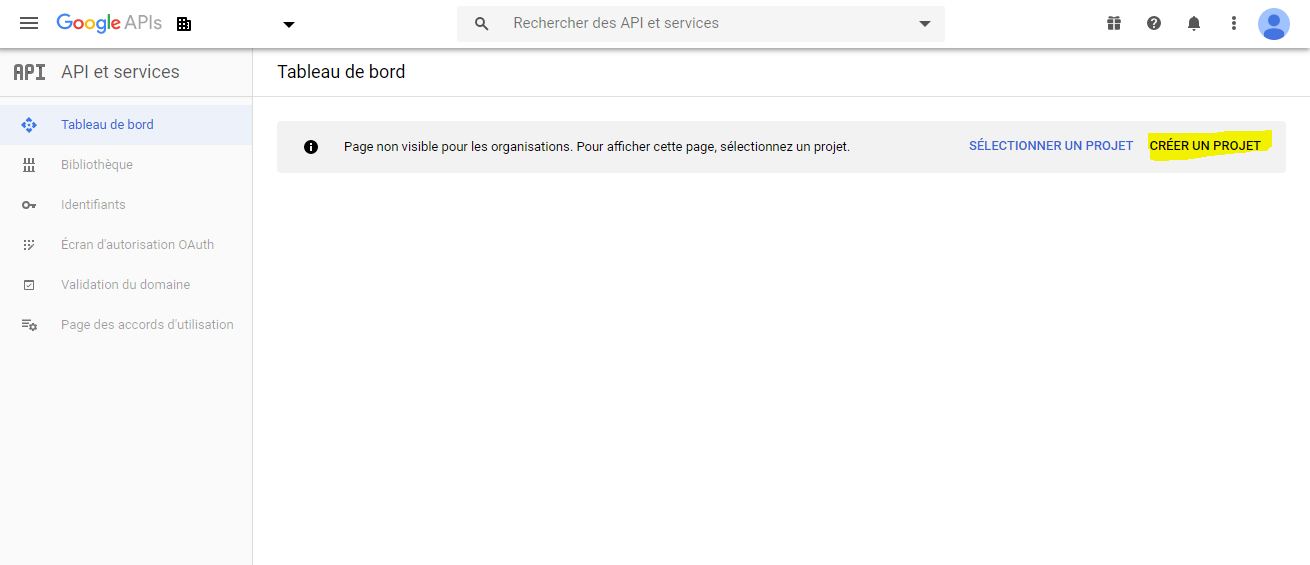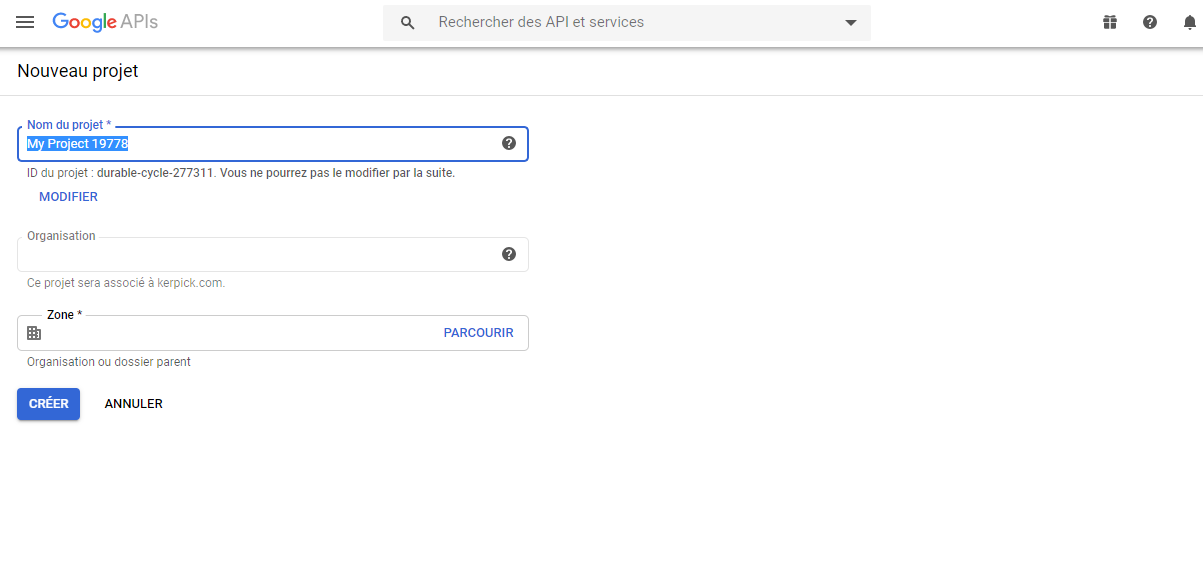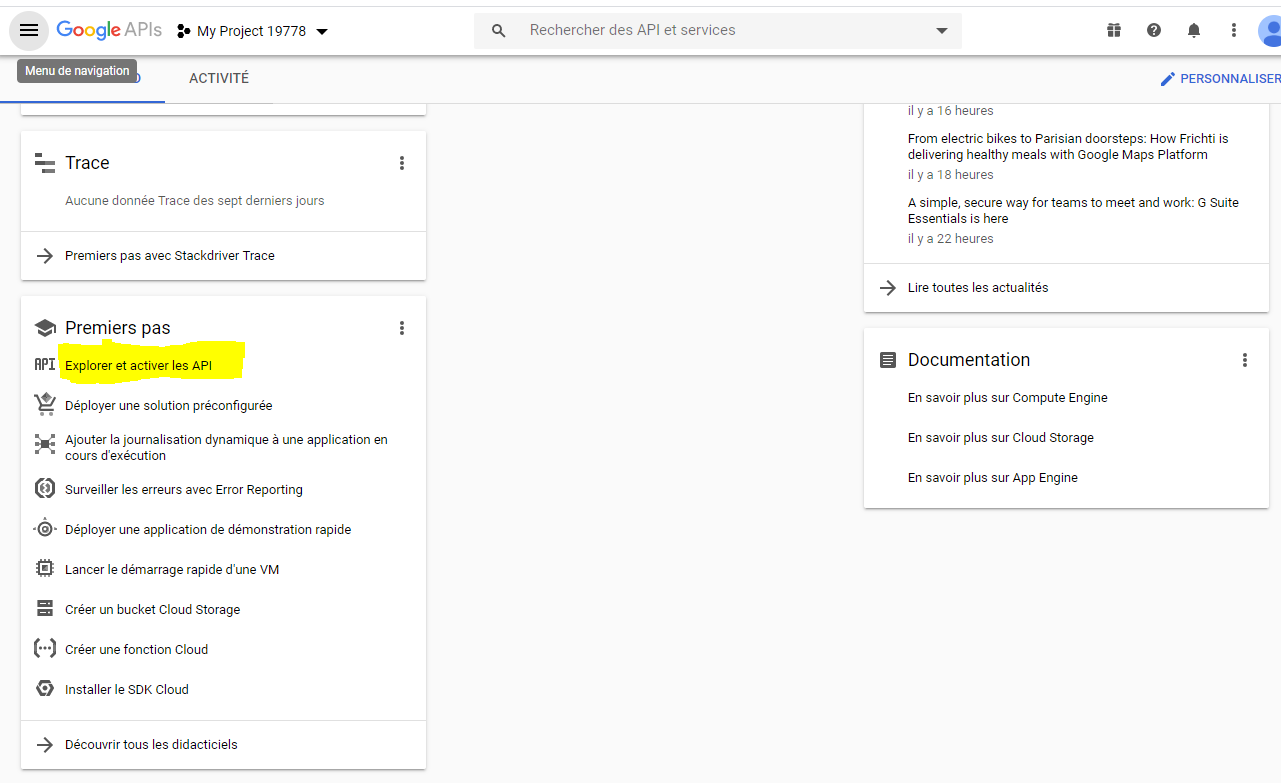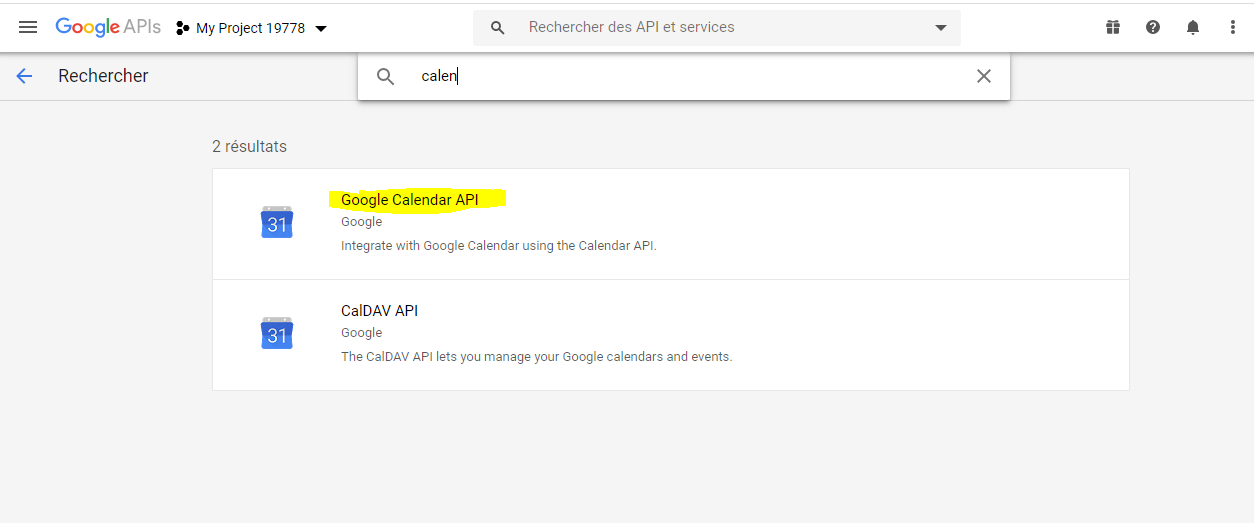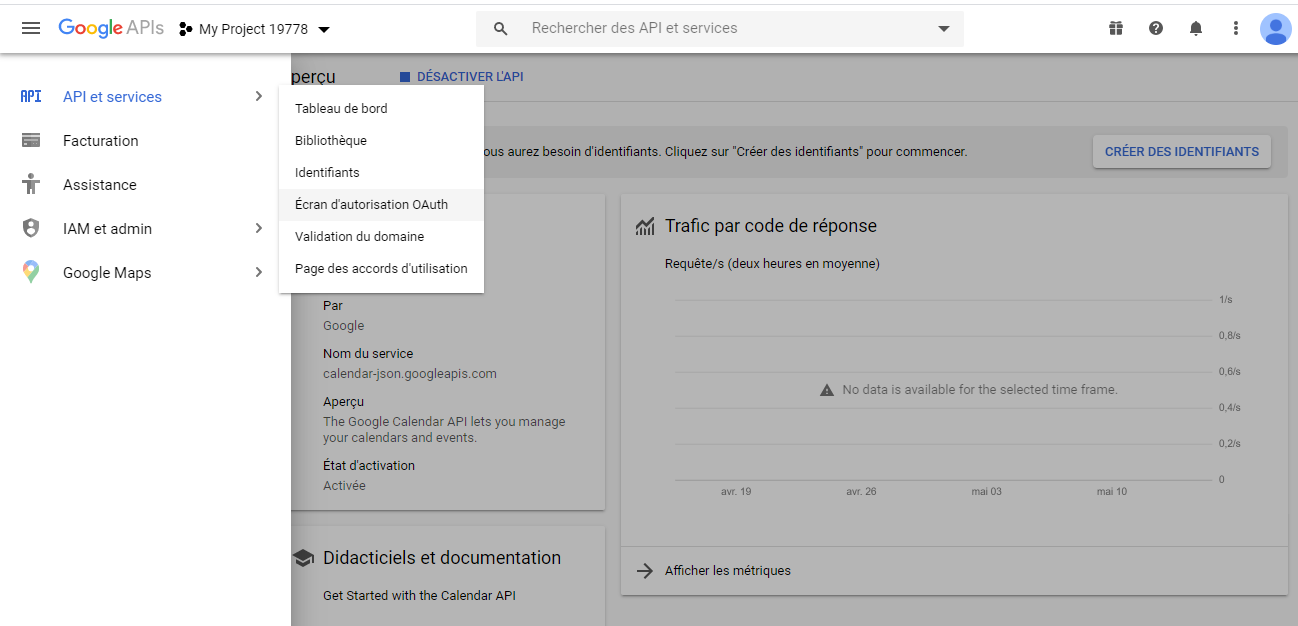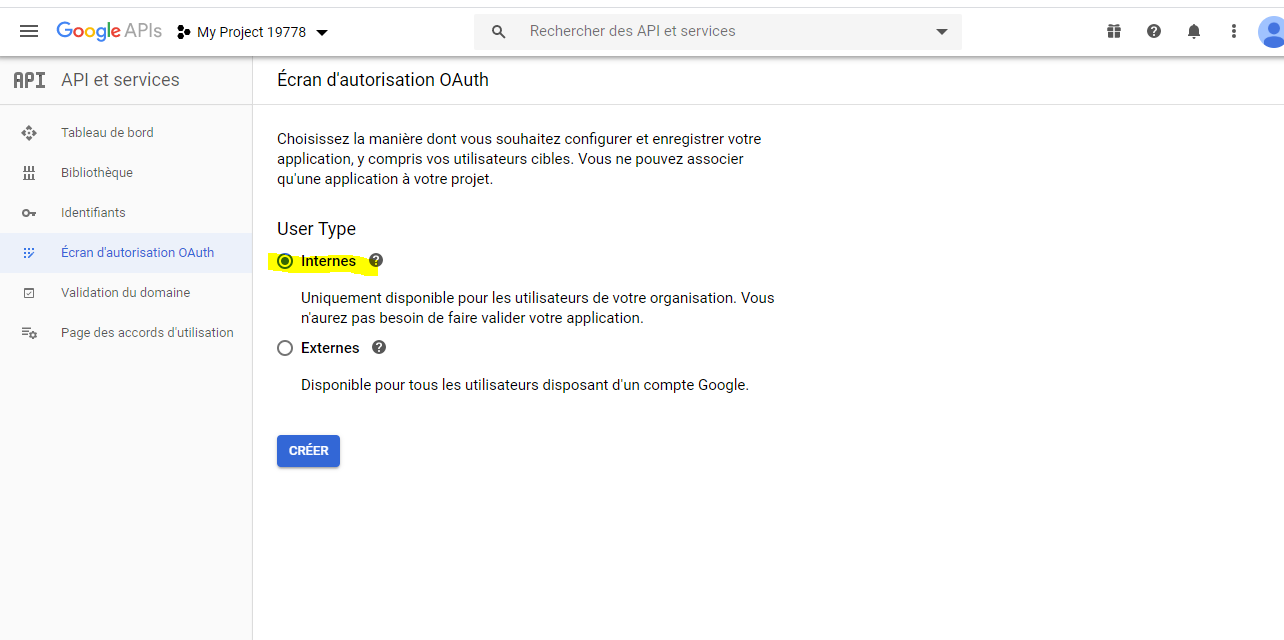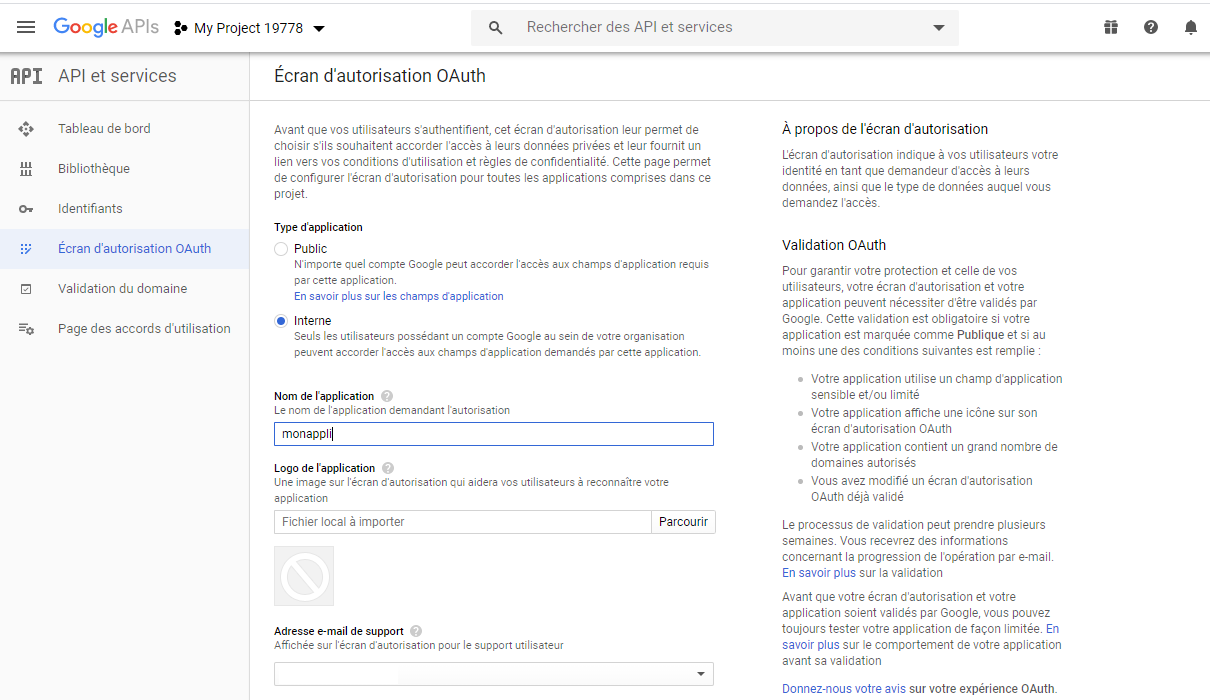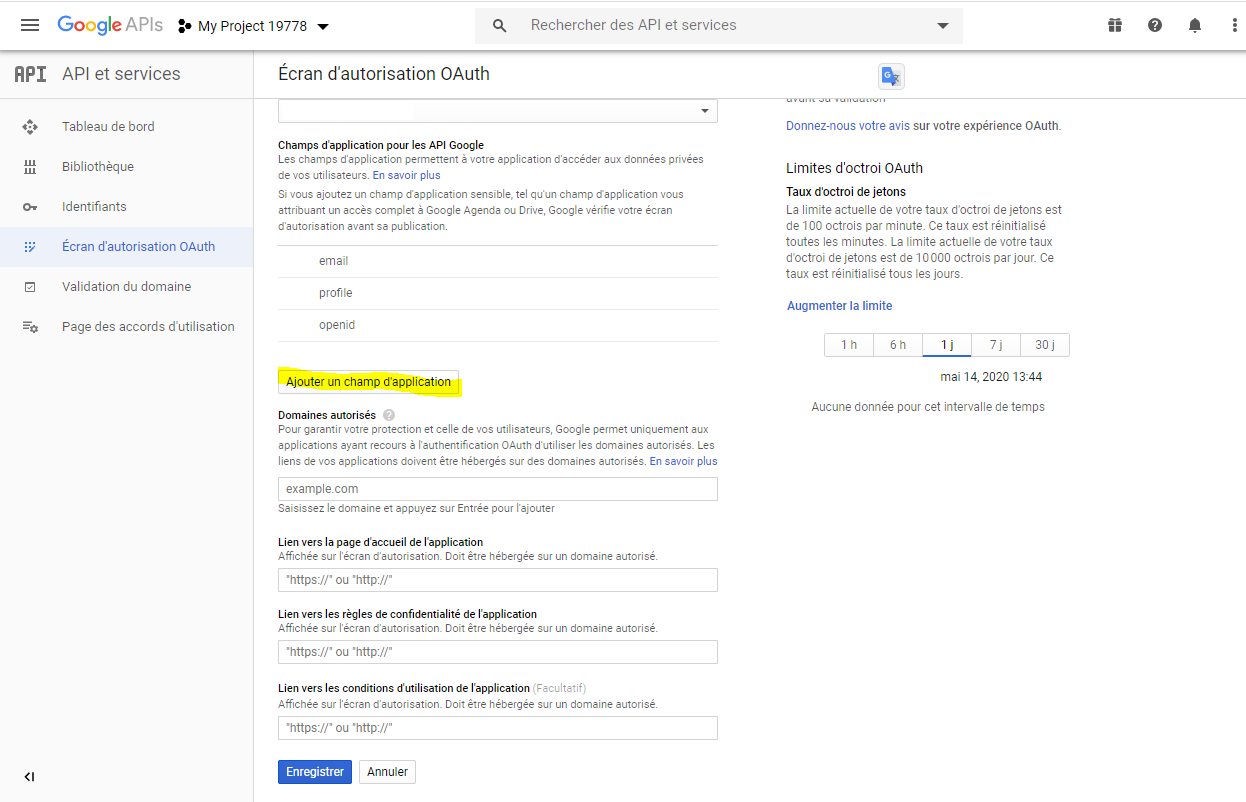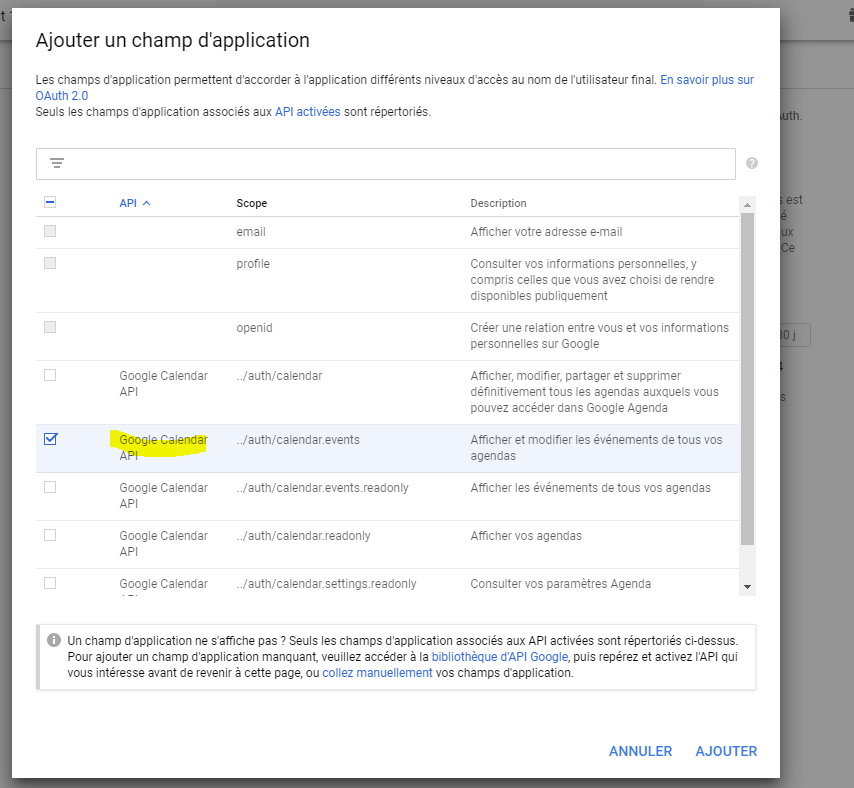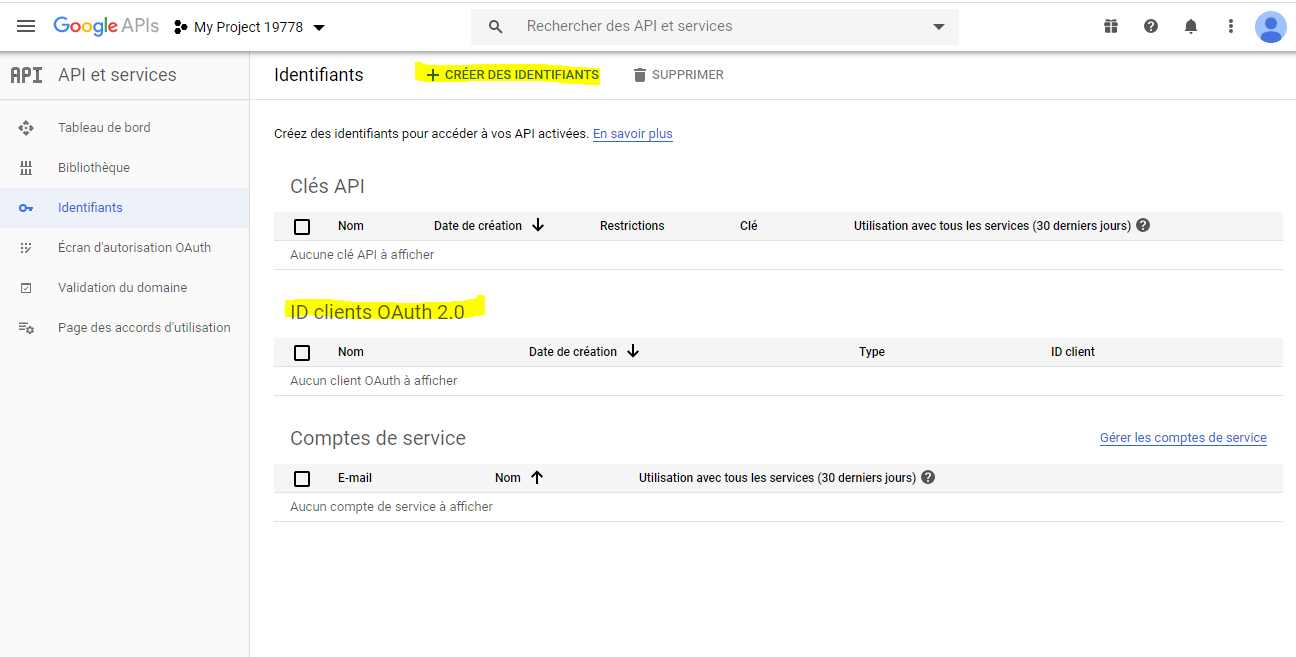Fournisseur de service OAuth2 Google(administration)
De Wiki1000
(Différences entre les versions)
(Page créée avec « Category:Founisseurs de services Category:Administration Category:Version900 ») |
|||
| (3 révisions intermédiaires par un utilisateur sont masquées) | |||
| Ligne 1 : | Ligne 1 : | ||
| + | ==Prérequis== | ||
| + | |||
| + | Il est nécessaire de détenir un compte [https://gsuite.google.fr/intl/fr/solutions/ GSuite] | ||
| + | |||
| + | Les utilisateurs doivent être créés. | ||
| + | |||
| + | ==Paramétrage== | ||
| + | |||
| + | Il s'agit de | ||
| + | |||
| + | # Créer un nouveau projet | ||
| + | # Ajouter l'API Google calendar à ce projet | ||
| + | # Créer l'écran d'autorisation OAuth | ||
| + | # Ajouter à l'écran d'autorisation OAuth le champs d'application Google calendar | ||
| + | # Créer un identifiant OAuth2 (afin d'obtenir le clientID et le clientSecret) | ||
| + | # Paramétrer l'adresse de rappel adéquate https://[hôte]/oauth2_success_2.l1000 (ou bien https://[hôte]/[nom du service]/server/oauth2_success_2.l1000 si IIS est utilisé) | ||
| + | |||
| + | |||
| + | ==Exemple== | ||
| + | |||
| + | [[image:auth_srv_google_1.png]] | ||
| + | |||
| + | [[image:auth_srv_google_2.png]] | ||
| + | |||
| + | [[image:auth_srv_google_4.png]] | ||
| + | |||
| + | [[image:auth_srv_google_5.png]] | ||
| + | |||
| + | [[image:auth_srv_google_6.png]] | ||
| + | |||
| + | [[image:auth_srv_google_7.png]] | ||
| + | |||
| + | [[image:auth_srv_google_8.png]] | ||
| + | |||
| + | [[image:auth_srv_google_9.png]] | ||
| + | |||
| + | [[image:auth_srv_google_10.png]] | ||
| + | |||
| + | [[image:auth_srv_google_11.png]] | ||
Version actuelle en date du 15 mai 2020 à 14:50
Prérequis
Il est nécessaire de détenir un compte GSuite
Les utilisateurs doivent être créés.
Paramétrage
Il s'agit de
- Créer un nouveau projet
- Ajouter l'API Google calendar à ce projet
- Créer l'écran d'autorisation OAuth
- Ajouter à l'écran d'autorisation OAuth le champs d'application Google calendar
- Créer un identifiant OAuth2 (afin d'obtenir le clientID et le clientSecret)
- Paramétrer l'adresse de rappel adéquate https://[hôte]/oauth2_success_2.l1000 (ou bien https://[hôte]/[nom du service]/server/oauth2_success_2.l1000 si IIS est utilisé)
Exemple
| Whos here now: Members 0 Guests 0 Bots & Crawlers 1 |
